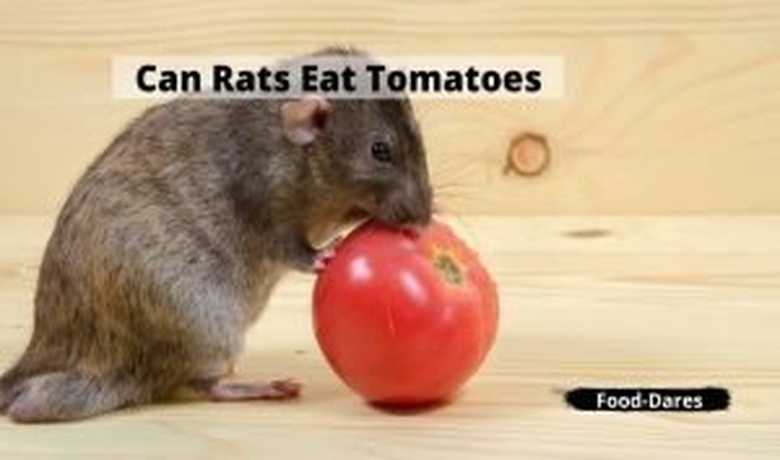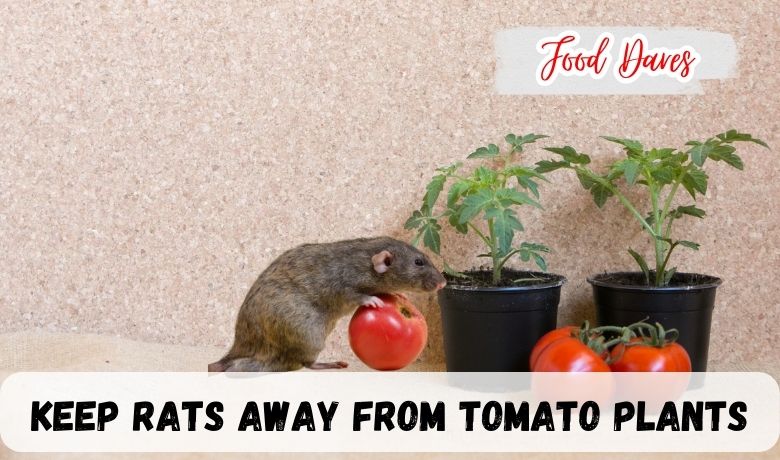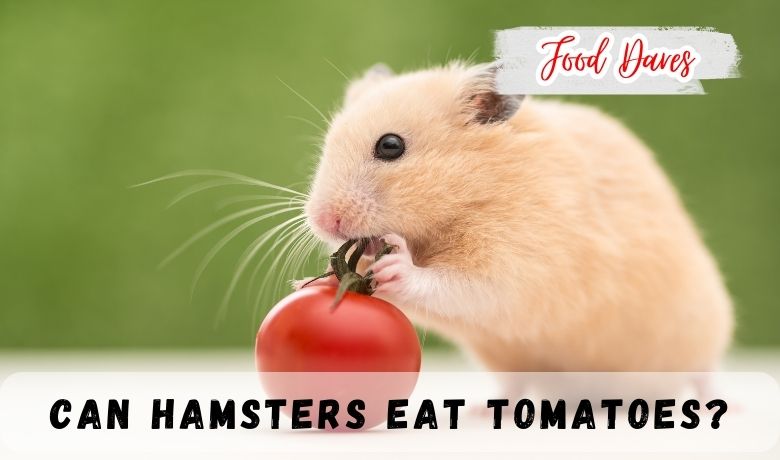Are you worried that rats are eating your tomato plants? But you don’t know how to keep rats away from tomato plants? Don’t worry. This article is written for you. This is the best and easiest guide for you.
Keeping rats away from your tomato plants is a notable question. Rats are undesirable comers to your tomato gardens. Rats require hidden shelter, water, and meals to stay in any environment.
Expel at least one of those; they’re much less possible to paste around. Keep your garden always neat and clean.
Rats are the lousiest ones, generally visible across the tomato plants. They consume tomatoes more than fruits or greens if grown in an identical garden.
Rats can harm your tomato plants when they get the chance to enter your tomato garden. They are also considered vermin and may extend probably acute diseases, including Leptospirosis, resulting in Weil’s disease.
To keep rats away from your tomato plants, repose your garden neat and clean. Rats may also be interested in tomato gardens. At the same time, you can’t protect your tomato plants from them. You should be removing waste from your garden.
Rats are undesirable comers to your tomato gardens. Rats require shelter, water, and meals to be able to survive. Expel at least one of those; they’re much less possible to paste around.
Though rats can consume everything and do something to live, they especially goal gardens due to their availability of sparkling foods, including tomatoes. You can repose rats far away from tomato vegetation by making their environments uneasy and ruining their survival.
Fortunately, there are numerous straightforward approaches to kill and deter rats so you can conserve your tomato plants from the damage of rats. In this article, I will evolve the easiest methods to keep rats away from tomato plants. So, read the article till the endpoint.
What Can I Plant To Keep Rats Away?
Some plants can keep rats away from your tomato plants through their scents that act as natural repellants. You can plant those plants on the border of your tomato garden.
You can also grow those plants, interspersing them via your suitable eating and flowering plants; community rodents may be extra willing to forage elsewhere.
Some plants that you can plant to keep rats away from your tomato garden are below here:
- Garlic
- Onions
- Rosemary
- Daffodils
- Sage
- Marigold
- Black pepper
- Lavender
- Tomatoes
- Oregano
- Grape Hyacinth
Those plants’ taste, smell, and roots are repulsive to rats and help keep them away. You can also sprinkle beaten vegetation from that flora across the garden, create water solutions and the offending herbs or smashed garlic to spray across the borders, and on plants being focused by rats to discourage attention. In this way, you can protect your tomato plants from the damage of rats.
How To Keep Rats Away From Tomato Plants
Rats are the execration of gardens. Rodents can cause various illnesses and destroy plants. Rats are not fastidious concerning food or haven sources.
They can live in any area, including colonies, open burrows, area including fields. They like to eat, consisting of compost piles, waste containers, and gardens.
Though rats can consume whatever they need to survive, they like gardens the maximum as they search for sparkling ingredients from there.
One of the approaches to keep away the rats is to regulate the surroundings wherein they like to dawdle around. You can do it by retaining your surroundings neat and clean.
Protecting Tomato Plants From Rodents:
Tomato plants are the most famous garden greens for your garden. However, those vines’ vegetation also is enormously appealing to an extensive kind of rodents. Protecting your tomato plants from these rodents requires an integrated approach to success.
The easiest ways of protecting your tomato plants from rodents are below here.
Carry Away All Easy Secret Shelter:
Transfer all garden apparatuses, such as wood and pipes, and create boxes and other objects from the garden wherein you’ll develop the plants, which may appeal to the rodents very quickly.
Moreover, look at the areas across the gardens and rats’ runways. These runways differ from those constructed to ease the visitor’s congestion. These are trampled strips that have been the rats run off right now to get away from capture.
Root Out Rodents Habitat:
You will also root out rodents in all types of habitats. In this way, you can protect your tomato plants from the damage of rats. Firstly, Search the garden for hints on rats, for instance, nipping and fruit blasting. You should also be appearance out if there are any viable rat nest sites such as colonies and borrows.
Putting Rat Traps:
Look for your tomato garden for hints of rats, including concentrations of rat running, chewing tips, and fruit-eating, which will assist you in deciding the places that appeal to the vermin. You will also look for suspected rat shelter areas such as colonies and burrows.
Observe the areas around the tomato garden and areas wherein rats are running. Runways are trampled down the slices of ground that vermin move ways again and again on their way from haven to a meals source.
Set the rat traps on the running ways and adjoining the tomato plants. Moreover, area traps in burrows and different places imply the presence of rats. Each web has to be approximately twenty toes from other lures.
Use this way to attract rats in the direction of the traps to area crumbled portions of puppy-dried fruits, food, bacon, nut, etc. It would be best if you didn’t use peanuts or cheese to trap them because rats can frequently take out that food without meshing it into the traps.
You should check out the traps sometimes to take them away as fast as feasible after they catch rats.
Using the pound Fleshpots:
Using pound fleshpots, you can keep rats away from your tomato garden. It acts as a rodenticide. Settle the dustbins with rodent-evidence lids and eliminate the particles close to the pound fleshpots.
Using Moth Balls:
Mothballs are herbal rat ejectors. Keep a few mothballs right into a tiny fabric sack. Put a stick into the ground close to the tomato plant. Then, tie the fabric sack with that specific stick.
However, there is a disadvantage of this method: they vanish effortlessly withinside the rain, so they need to get replaced immediately after a heavy downpour.
You must ensure that the mothballs are positioned by giving space to the tomato plants. If it is a water outlet after a rainfall, the mothball substances get combined with the tomato, therefore making it poisonous.
Apply Pepper Spray or Peppermint LubricantInto The Area:
Applying pepper scatter into the garden is a natural way to keep rats away from your tomato plants. First, spray cotton balls in natural peppermint lubricant around your tomato garden. You must substitute the cotton after it rains; otherwise, every 2 to 3 days.
Substitute, you can use water, warm pepper sparks, and dish cleaning soap to prepare your proper pepper scatter, keep it in a scatter plot, and scatter it around your tomato plants at the identical schedule.
Few gardeners like to use peppermint lubricant for rat rejecters. However, there needs to be substantial proof to aid this. There is respectable proof that pepper spray repels much less concerning its effectiveness towards rats.
What Is Eating My Tomatoes at Night?
Rats are nocturnal. This means that they are eating tomatoes while maximum people are deep asleep. Suppose whole tomatoes are lost, or you find half-eaten tomatoes on the ground.
In that case, you can be assured that rodents and family animals such as rats are probably responsible for eating your tomatoes at night.
Do Rats Like Tomatoes?
Rats will eat nearly anything. Tomatoes are a favorite of humans and birds, insects, birds, and other wildlife animals, including tiny rodents like rats, squirrels chipmunks.
Rats like tomatoes because they are natural and comfortable to ingress, sparkling and tasty. Rats also like to eat other vegetable plants. They are primarily interested in fleshpots, compost piles, and gardens and are open to what they can eat.
How to Keep Rats Out of Garden
Gardens are usually friendly to rats because they supply water, food, and safe shelter. You can keep rats out of your garden by following this method:
Keep Rats Out of Garden:
You can keep rats out of the garden by following these ways-
- Dispel compost pile into rodent-resistant bins with tight-becoming Containers.
- Avoid feeding other pet animals in the rat’s runways.
- Store seed and puppy food in rodent-evidence bins.
- Remove fallen-down nuts or fruits.
- Move all fecal matter like birds, cats, dogs, and food waste daily.
- Extract standing water and enhance expulsion so water doesn’t settle.
- Remove puzzles from garage sheds and storage.
- Reap grass and weeds and cut returned plants around homes and walls.
Fencing to Keep Rats Out of Garden:
If you don’t have a blockage around your garden, you need to make a strong fence for more security. You can fence your garden in the right way so rats can not get into your garden. You have to use hardware fabric because they can’t suit through the holes.
To deter a hole below the wall, you must enter your hardware fabric fence at least 8-12 inches deep. This makes an underground obstacle. Many humans are lovers of electric fences. However, that may be an intense amount.
How to Keep Rats Out of Your Vegetable Garden:
If you’re a vegetable garden, you may ensure that lawn rats will come to eat Your fresh vegetables. Rats are common garden harmful animals.
However, it takes work to keep away from your garden. Start with the aid of using making your garden much less rat-pleasant by eliminating secret shelter, water source, and food sources.
Then, attempt unproven domestic treatments when you wish, or move directly to calling a pest to manipulate occupational, mainly if you can find hints of a pest infestation.
If you want to keep rats away from your vegetable garden, you should keep rats out of your garden and yard first.
These ways are below here:
Keep Rats Out of Garden:
You can keep rats out of Your garden by following these ways:
- Avoid feeding your pet near the garden.
- Keep the garden clean as soon as possible.
- Move materials around.
- Give obstacle access to the garden.
- Protect your compost pile.
- Keep an eye on your fruit.
- Keep away food and water sources.
- Get some catnip from your garden center.
- Control them with pepper spray and peppermint oil.
Keep Rats Out of Yard:
You can keep rats out of your yard by this method, which is below here:
- Examine the structure of the insides.
- Amplify your yard structure.
- Remove long grass.
- Keep your yard neat and clean.
- Protect your compost bins.
- Replace or secure your garbage bins.
- Remove woodpile.
- Clean the circumference of your house and other structures.
- Sealing gaps.
- Create a border of herbs.
- Keep solar-powered rejecters.
(Frequently Asked Questions) About Tomato Plants
How do I keep rats off my tomato plants?

By applying deterrents (carrying away secret shelter, removing waste, protecting compost bins), using traps, using mothballs, and finally applying rodenticide such as applying pepper spray, you can keep rats off your tomato plants. You should keep your garden always neat and clean for the expulsion of rats from your garden.
Do rats eat tomato plant leaves?
Though rats can eat everything and live on anything, they don’t like to eat tomato plant leaves because they contain toxicity, damaging rats.
For this reason, it is thoughtful for rats avoiding to eat tomato plant leaves. But, sometimes, they eat tomato plant leaves in small portions.
How do I protect my vegetable garden from rats?
By reducing rats attractants from your garden(removing waste, food source, and water source, protecting compost bins, and garbage piles), applying home remedies(applying pepper scatter and peppermint lubricant), dealing with an infestation, and finally, contact with a rats control occupational you can protect your vegetable garden from rats.
What is eating my tomatoes at night?
Answer: Rats are nocturnal. They like to eat tomatoes at night when humans remain deep asleep. Rats like to eat tomatoes because tomatoes are tasty and fresh to eat. Raccoons, Squirrels, Deer, and Birds also eat your tomatoes at night and damage your garden.
What is the best insect spray for tomato plants?
Ultra-Pure Peppermint spray is the best insect spray for tomato plants. This spray repels Rats, Ants, Raccoons, and more. It is better to use natural insect spray for tomato plants.
Examples of suitable natural insect sprays for tomato use are those made with insecticidal cleaning soap or neem oil.
Conclusion
Finally, By reading this article, you can get the easiest and best guide on keeping rats away from tomato plants. Rats are an unaccepted comer in your tomato garden.
Rats can damage your tomato plants highly. That is why you can apply the above of these ways in your tomato garden to keep rats away from your tomato plants.
By keeping your garden neat and clean, removing all secret shelter, rooting out all rodent habitats, using rats traps, using math balls, applying pepper spray or peppermint oil, and finally dealing with an infestation, you can keep rats away from your Tomato Plants.
You can plant some plants on the border of your tomato garden, including onions, garlic, daffodils, and black pepper, which scents help to keep rats away from your garden.



